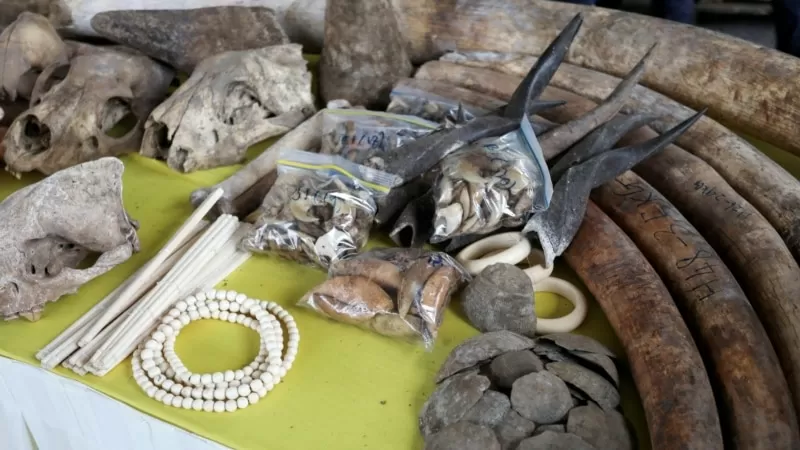UN Report: Fighting Against Illegal Wildlife Trafficking
The illegal wildlife trade has been a persistent issue for many decades, with devastating effects on the world’s biodiversity. Despite numerous efforts to combat it, a new report by the United Nations (UN) has revealed that this criminal activity is still prevalent and poses a serious threat to the survival of many species.
According to the UN Office on Drugs and Crime (UNODC) report titled “World Wildlife Crime Report 2020”, wildlife trafficking continues to generate billions of dollars each year, making it one of the most profitable criminal activities in the world. The report states that this illicit trade not only threatens the survival of various species but also fuels corruption, undermines the rule of law, and hinders sustainable economic development.
One of the most alarming findings of the report is the sharp increase in the number of species being targeted by traffickers. The report notes that the demand for exotic pets, traditional medicines made from animal parts, and luxury goods made from endangered species is on the rise. This has led to the trafficking of not only well-known endangered species such as elephants and rhinos but also lesser-known species like pangolins and helmeted hornbills.
The report also highlights the impact of this illegal trade on local communities and the global economy. It is estimated that the illegal wildlife trade generates up to $23 billion annually, making it a lucrative business for criminal networks. This money is often used to fund other illegal activities, including human trafficking and arms smuggling, creating a cycle of criminality and endangering the safety of individuals and communities.
The UNODC report praises the efforts of law enforcement agencies in various countries who have made significant progress in tackling the illegal wildlife trade. But they also stress the need for a more coordinated, global response to address this issue effectively. UNODC Executive Director, Ghada Waly, emphasized, “The UNODC World Wildlife Crime Report 2020 confirms that wildlife and forest crime are not only threats to biodiversity and the rule of law but also to the security and prosperity of local communities and ultimately to sustainable development.”
One of the key recommendations of the report is the need for stronger legislation and penalties for those involved in the illegal wildlife trade. This includes stricter enforcement of existing laws and the implementation of new laws that target the entire supply chain of the illegal trade. The report also highlights the importance of community involvement and education to raise awareness about the harmful effects of wildlife trafficking.
The UNODC report also sheds light on the impact of the COVID-19 pandemic on the illegal wildlife trade. While the crisis has disrupted this illicit trade in some ways, it has also created new challenges. The closure of borders and travel restrictions have made it harder for traffickers to transport illegal wildlife. However, the decline in tourism has also led to a decline in revenue for conservation efforts, making it more difficult to protect endangered species.
Despite the challenges posed by the ongoing pandemic, the report offers hope and highlights the successes achieved in recent years. It showcases the efforts of countries such as Nepal and Thailand, which have seen a decline in poaching incidents due to their robust law enforcement measures. It also mentions the successful operations led by Interpol, resulting in the seizure of tons of illegal wildlife products.
The UNODC report serves as a wake-up call for governments, law enforcement agencies, and society as a whole. It is a reminder that the illegal wildlife trade is an ever-evolving threat that requires continuous and global efforts to be effectively addressed. The report has also sparked renewed calls for international cooperation to tackle this issue, and the UN has reiterated its commitment to supporting member states in their fight against wildlife trafficking.
In conclusion, the UNODC World Wildlife Crime Report 2020 is a crucial document that highlights the need for immediate action to combat the illegal wildlife trade. It brings attention to the devastating effects of this criminal activity and emphasizes the urgent need for stronger and more coordinated efforts to protect our planet’s precious biodiversity. It is a call to action for all of us to come together and join the fight against illegal wildlife trafficking. Let us all work towards a future where our wildlife is no longer threatened by human greed.


